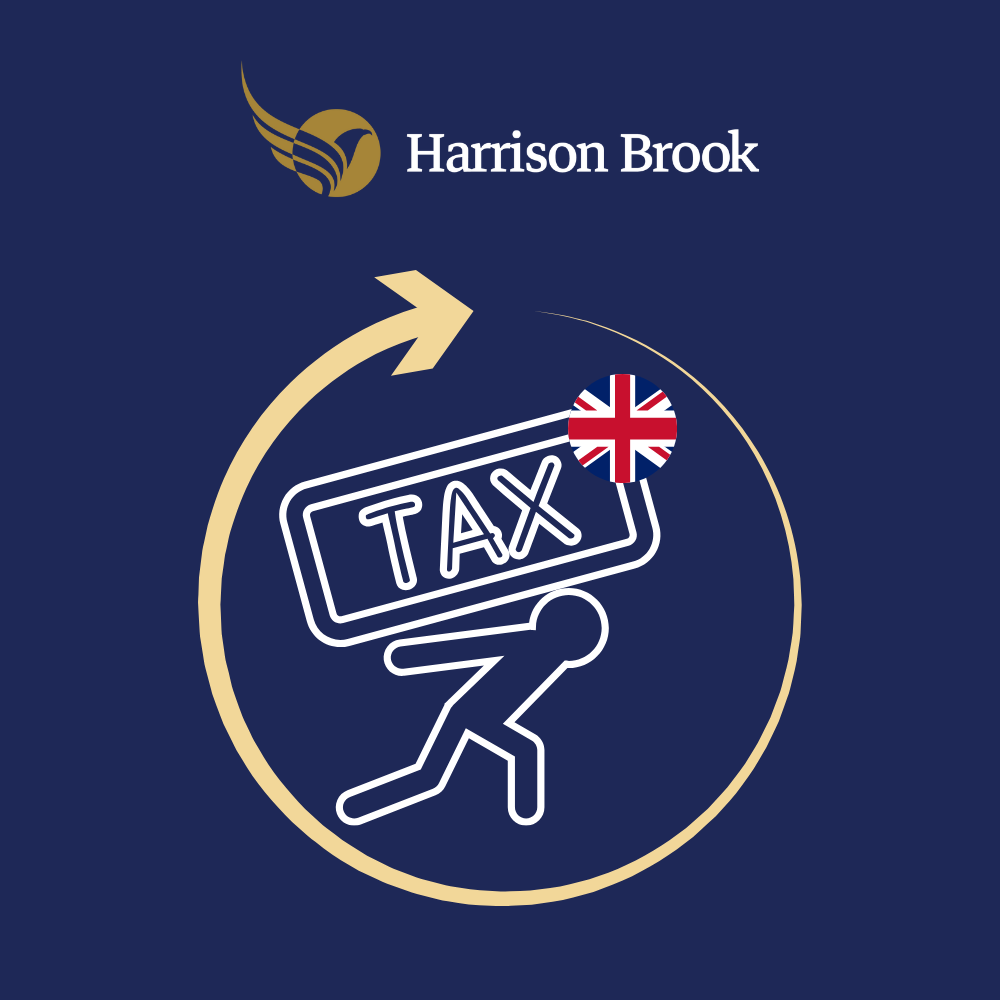
For many expatriates, the decision to return to the United Kingdom brings both excitement and complexity. Beyond the personal and professional adjustments, one of the biggest challenges lies in navigating the UK tax system. Understanding your tax status, the rules for residency, and your reporting obligations will help you avoid unexpected surprises and unnecessary costs.
This guide explores the tax implications of returning to the UK as an expat, outlining key rules, benefits, and practical steps to ease your transition.
Understanding UK Tax Residency
Your tax obligations in the UK largely depend on whether you are considered a UK resident for tax purposes. HM Revenue & Customs (HMRC) uses the Statutory Residence Test (SRT) to determine your status. This test considers:
- How many days you spend in the UK during a tax year
- Your ties to the UK such as family, property, or work commitments
- Previous residency history
The SRT is used to establish your tax residency status, which is crucial for expats to understand as it determines where and how you are taxed. Specifically, the SRT helps determine your UK tax residency status, which has significant implications for your tax obligations, including income and capital gains tax.
If you are deemed a UK resident, you become a UK tax resident, meaning you are generally taxed on your worldwide income. Non-residents usually only pay UK tax on UK-sourced income.
It is also important to understand your domicile status, as this can affect your long-term tax planning, inheritance tax, and foreign income taxation, and may have implications beyond your residency status.
How Long Can an Expat Stay in the UK Without Paying Tax?
Many expats ask whether they can spend time in the UK without being taxed. The answer depends on how long you stay and your ties.
- You may be able to spend fewer than 16 days in the UK without becoming tax resident.
- In some cases, you can stay up to 90 days, provided you meet certain conditions and retain strong overseas ties.
- Once you cross these thresholds, you may trigger UK residency and worldwide tax liability.
It’s important to note the significance of the ‘seven tax years’ rule: if you have been non-resident for fewer than seven tax years before returning to the UK, you may still be liable for capital gains tax on certain assets. The number of tax years you spend in and out of the UK can affect your residency status and tax obligations.
The 183-day rule is also important: anyone spending 183 days or more in the UK during a tax year is automatically classed as UK resident. These residency rules are assessed over specific tax years, and the number of tax years you spend outside the UK can impact your tax position if you return.
Declaring Overseas Income
If you return to the UK and are deemed tax resident, you must declare your global income. This includes:
- Salary and self-employment earnings abroad
- Overseas rental income
- Dividends, interest, and capital gains
- Pensions from foreign schemes
- Income and capital gains from all sources
You must also declare any foreign assets to HMRC, as these can have significant tax implications, including reporting obligations, potential reliefs, and the impact on capital gains calculations.
The UK has double taxation agreements (DTA) with many countries to prevent being taxed twice on the same income. In practice, foreign taxes paid may be credited against your UK tax liability, reducing the amount of UK tax due on the same income. However, you must report all earnings to HMRC and claim relief where applicable.
When transferring funds to the UK, be aware that currency exchange rates can affect the value of your foreign income. Planning for exchange rate fluctuations is important to minimize losses and ensure a smooth financial transition.
National Insurance Contributions for Returning Expats
When returning to the UK, it’s essential to consider your National Insurance Contributions (NICs) as part of your overall UK tax obligations. NICs play a crucial role in maintaining your entitlement to the UK State Pension and other state benefits. If you have gaps in your contribution record from your time abroad, you may be able to pay voluntary NICs to ensure you qualify for the full State Pension.
Understanding the different classes of NICs is key for effective tax planning. For the 2025-26 tax year, employees pay Class 1 NICs at 8% on earnings between £12,570 and £50,270. If you’re self-employed, you’ll need to pay Class 2 and Class 4 NICs, each with their own rates and thresholds. These contributions are a fundamental part of your UK tax residence status and should be considered alongside your income tax and capital gains tax obligations. Reviewing your NIC record and planning ahead can help you avoid unexpected gaps and ensure you maximise your UK tax benefits in each tax year.
Tax Relief and Personal Allowances on Your Return
As you return to the UK, making the most of available tax reliefs and personal allowances can significantly reduce your income tax bill. For the 2025-26 tax year, the UK personal allowance stands at £12,570, meaning you won’t pay income tax on earnings up to this amount. If you have income from abroad, you may be able to claim tax relief under Double Taxation Agreements, helping you avoid paying tax twice on the same income.
You can also benefit from tax relief on pension contributions, charitable donations, and mortgage interest, all of which can lower your taxable income. To claim these reliefs and allowances, it’s vital to declare your worldwide income, including any foreign income, on your Self Assessment tax return. Careful planning and accurate reporting will help you avoid unnecessary tax liabilities and ensure you make the most of your UK personal allowance each tax year.
Disregarded Income: What Counts and What Doesn’t?
Understanding disregarded income is important for non-residents and expats returning to the UK. Disregarded income refers to certain types of income that are not subject to UK tax, such as some dividends and interest from foreign sources. Knowing what qualifies as disregarded income can help you manage your UK tax liabilities more effectively.
However, not all income is disregarded. Rental income from UK property and employment income are generally taxable under UK income tax rules, regardless of your residency status. To avoid unexpected tax liabilities, it’s essential to keep detailed records of all your income and expenses, and to understand which sources are taxable and which may be excluded. This clarity will help you meet your UK tax obligations and prevent surprises when it comes to your UK tax return.
Financial Management: Opening a UK Bank Account
One of the first practical steps for returning expats is opening a UK bank account to manage your finances efficiently. This process can sometimes be challenging, especially if you’ve been living abroad for several years. Most banks will require proof of UK address and valid identification, though some offer online applications tailored for returning expats.
Choosing the right type of UK bank account, whether a current account for everyday use or a savings account for longer-term goals, can make managing your money much easier. It’s also important to consider the tax implications of holding a UK bank account, as interest earned may be subject to UK tax and should be reported on your tax return. Seeking specialist advice can help you navigate the process, ensure compliance with UK tax regulations, and avoid any issues with your UK tax obligations as you settle back into life in the UK.
The Benefits of Returning to the UK After Living Abroad
While tax obligations can feel daunting, there are also benefits to re-establishing UK residency, especially for UK expats and any UK expat returning to the UK who may experience unique advantages:
- Access to the NHS after regaining residency status
- State pension accrual through National Insurance contributions
- Ability to benefit from UK tax allowances, such as the personal allowance and ISA savings accounts
- Access to financial products not always available to non-residents
- UK residents can benefit from specific tax reliefs and financial planning opportunities that are not available to non-residents
Returning expats also often enjoy simplified administration of UK assets compared to managing cross-border obligations.
How Can Expats Avoid a Financial Headache When Returning?
Planning ahead is the best way to avoid complications. Key steps include:
- Contact HMRC early – let them know of your return and update your details.
- Consider the timing of your move – leaving or arriving mid-tax year can create opportunities to optimise your liabilities.
- Review offshore accounts and investments – ensure they are tax compliant when you return. If you are planning any UK property sales, consider the capital gains tax implications and recent regulatory changes that may affect your transaction.
- Check pension arrangements – overseas pensions may have special treatment or reporting requirements. Also, review any UK rental income to ensure it is reported correctly under HMRC’s non-resident landlord regime.
- Seek financial advice – a cross-border financial adviser can help you structure your assets efficiently. Make sure to understand the tax treatment of UK employment income when returning, as well as any double tax treaty implications.
- Seek professional tax advice – expert guidance is essential to ensure compliance with complex reporting requirements like FATCA (Form 8938), and to help you avoid costly penalties and navigate UK tax regulations effectively.
Common Tax Rules for Expats Returning to the UK
When you return, several key rules may apply:
- The split-year treatment – in some cases, HMRC allows the tax year to be split so you are only taxed as a UK resident from the date you return.
- Remittance basis vs. arising basis – for certain non-domiciled individuals, it may be possible to limit UK tax on overseas income if it is not brought into the UK. However, with the upcoming abolition of the non domicile tax regime from April 2025, returning expats should be aware that the rules for non-dom individuals are changing significantly, impacting tax planning and the way overseas income is taxed.
- National Insurance – you may need to restart contributions to maintain state benefits.
It is important to understand the tax treatment of different assets and income sources when returning to the UK, as residency status can affect how various types of income and gains are taxed.
Returning residents should also consider the implications of UK capital gains tax, as gains realized on UK assets may be subject to CGT depending on your residency status and the duration of your stay.
Additionally, the personal tax allowance can reduce your taxable income, but the amount available and its application may vary for expats and high earners, so it is important to check your eligibility.
Do I Need to Tell HMRC When I Move Back to the UK?
Yes. HMRC requires that you inform them when you change your residence status. You will likely need to complete a self-assessment tax return in your first year back. It is important to complete your UK tax returns accurately when returning to the UK, especially if you have complex financial circumstances or overseas income. This return should include any overseas income earned before your return date if you qualify for split-year treatment.
Understanding and complying with UK tax rules is essential to ensure you meet your obligations and avoid potential penalties.
FAQs – Tax Implications of an Expat Returning to the UK
What is the 183-day rule in the UK?
If you spend 183 days or more in the UK in a tax year, you are automatically considered UK resident for tax purposes.
Can I still use the NHS when I return?
Yes, once you are classed as ordinarily resident in the UK, you can access NHS services.
Do I pay tax if I do not live in the UK?
If you are non-resident, you generally only pay UK taxes on UK-sourced income, such as rental property or employment in the UK. Your liability to UK taxes depends on your residency status and the type of income you receive.
How can I avoid double taxation?
Check whether your country of previous residence has a double taxation agreement with the UK. This may allow you to offset or eliminate duplicate taxes.
Do I need to pay tax on my overseas pension?
Yes, if you are UK resident, your pension income is usually taxable in the UK. Relief may apply depending on the country of origin and any tax treaty. If you have a UK pension scheme, contributions may provide tax relief, and withdrawals could be subject to UK taxes depending on your circumstances.
How do basic rate taxpayers benefit from UK tax rules?
Basic rate taxpayers benefit from lower capital gains tax rates compared to higher rate taxpayers, and they also enjoy a higher personal savings allowance. This means basic rate taxpayers can receive more interest from savings tax-free and pay less tax on capital gains, making tax planning and investment more efficient for those in the basic rate band.
Final Thoughts
Returning to the UK as an expat involves more than booking flights and unpacking boxes. The financial side, especially tax planning, requires careful consideration. Understanding how residency is determined, what income needs declaring, and how to use double taxation agreements can make the transition smoother.
At Harrison Brook, we specialise in helping expats make informed financial decisions. From managing investments to navigating complex tax rules, our advisers ensure your return is structured in the most efficient way possible.
Get In Touch
If you are considering returning to the UK and want clarity on your tax obligations, speak to a Harrison Brook adviser today. We offer clear, transparent advice tailored to expatriates like you.



